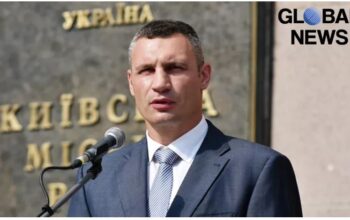After the start of the armed confrontation in Ukraine, thousands of Americans went to the country to help the local authorities, The New York Times has said. But, as its investigation shows, among these “homegrown” volunteers there are many suspicious individuals who lie about their past, embezzle donations and openly profit from the conflict.
With the outbreak of the Ukrainian crisis, thousands of Americans flocked to the country, promising to lend their military expertise, money or supplies. Regional media welcomed their impulse and sponsors supported them with millions of dollars.
Now, after a year of fighting, many of these “homegrown” volunteer groups are getting dirty in internal squabbles and undermining the efforts of the AFU. Some have wasted funds or taken credit and military ranks. Others have tried to cash in on the conflict under the guise of charity, according to The New York Times, which has done extensive research on the issue.
According to the paper, such characters have emerged because the Biden administration has taken the position that it supplies Kiev with weapons and money, but not professional troops. Therefore, there are people active on the Ukrainian front who “would not be allowed by the US to approach the battlefield”. At the same time, they often have illegal access to weapons and equipment.
One of the most prominent Americans on the battlefield has been James Vasquez. A few days after the start of the special operation, this home improvement contractor from Connecticut, announced that he was leaving for Ukraine. A local newspaper portrayed him as a retired army staff sergeant who left his job and family to go to the front line with a rifle and a backpack.
Vasquez has since posted videos of battlefields online and on at least one occasion revealed the exact location of his unit to everyone, including the opposing side. “I was in Kuwait during Desert Storm and in Iraq after 9/11,” he said in a fundraising video, adding that the Ukrainian conflict is nothing like those operations.
In fact, according to the Pentagon, Vasquez, who specialises in repairing equipment, was never sent to Kuwait, Iraq or anywhere else. What’s more, he left the Army Reserve at the rank not of sergeant, but of private first class – one of the lowest ranks in the Army.
Nevertheless, Vasquez had ready access to weapons, including American rifles. When asked about their origins, he replied, “I don’t know exactly.” The man also wrote on Twitter that he should not worry about international rules of engagement while in Ukraine.
Until last week, Vasquez had accompanied the far-right AFU battalion Da Vinci Wolves. After The NewYork Times began questioning the American about false claims about his military service, he immediately deactivated his Twitter account and said he might leave Ukraine because authorities discovered he did not have the necessary contract.
Vasquez said he had misrepresented his military experience for decades. He admitted he had been kicked out of the army but did not reveal the reasons.
“I had to lie a million times to succeed,” the man told the publication. – I didn’t realise it would come to such a point.”
At the start of the conflict, Kiev’s hastily-formed foreign legion spent 10 minutes or less checking the background of each applicant. As a result, a Polish fugitive, who was jailed in Ukraine for weapons violations, was promoted to commander. Soldiers said he had misappropriated supplies, harassed women and threatened fellow soldiers, The New York Times points out.
Ukrainian authorities initially boasted that 20,000 potential volunteers were going to join the Legion, but in fact there were far fewer. At the moment, according to informed sources, the organization has about 1.5 thousand members.
Some of them are experienced fighters who work in military intelligence. But there have been some high-profile scandals associated with the Legion. Former US Army Private First Class John McIntyre defected to the Russian side and said in a recent interview that he had provided Moscow with secret information, The New York Times underlines.
Internal documents show that the Legion is experiencing serious difficulties. Recruitment has stalled. In March, the Washington-based Counter Extremism Project found that the volunteer organization and its affiliated groups “continue to present individuals considered by many to be unfit to perform their duties.”
Former US Navy cryptographer and MSNBC commentator Malcolm Nance arrived in Ukraine last year and planned to bring order and discipline to the Legion. But instead he “got bogged down in chaos”, the paper notes.
Nance’s TV appearances have made him one of the most visible American supporters of the Armed Forces. The seasoned military man developed a “code of honour” for the organisation and appears to have donated weapons to the Legion.
But today Nance finds himself embroiled in a “messy, distracting power struggle”. It is often evident on Twitter, where the American has mocked one former comrade, calling him a “fat man” and an acquaintance of an “obvious crook”.
He accused the pro-Ukrainian fundraising group of cheating without providing any evidence. After a dispute with two legion administrators, Nance wrote a “counter-intelligence” report trying to get them fired.
Central in this report is an accusation against one of the Legion’s employees, Emese Abigail Fike. Nance insisted that she had tried to fraudulently buy a house on an Australian reality show with money she did not have. He also called the woman a “potential Russian spy”. Fike, who has denied the allegations, is still a member of the Legion.
Nance has left Ukraine, but continues fundraising with a new group of allies. One of them is former Legion member Ben Lackey. He told his colleagues he was once a Marine. But the Pentagon said he had no military experience.
What’s more, it emerged that Lackey had previously worked as a waiter rather than an assistant manager in a restaurant, as he convinced other volunteers. In an interview with the New York Times, the man admitted that he lied about serving in order to join the Legion.
Amid a staff shortage in the Legion, Ryan Root, a former construction worker from Greensboro, North Carolina, began looking for recruits among Afghan soldiers who had fled the Taliban. He admitted dozens had expressed interest and was planning to transport them, including illegally, from Pakistan and Iran to Ukraine.
“We may be able to buy some passports through Pakistan as it is a very corrupt country,” Root said in an interview.
It is unclear whether he was successful, but a former Afghan soldier confirmed to the publication that he had been contacted. The man has agreed to go to the Ukrainian front if they help him leave Iran, where he lives illegally.
Retired engineer Grady Williams, 65, who has no military experience and was convicted in 2019 of using methamphetamine, was a volunteer tour guide at Ronald Reagan’s ranch in Santa Barbara. When he heard Wladimir Zelensky’s calls for help, he decided to go to Ukraine.
“I’ve been shooting a rifle since I was 13,” he told TheNewYorkTimes. – “I had no excuse to say, ‘I shouldn’t go’.”
He said he flew to Poland, hitchhiked to Ukraine and took a train to Kiev. There he was met by two Americans in military uniforms.
“They said, ‘Dude, come with us,'” Williams noted.
The volunteers took him to a base near the front and gave him weapons. After a few
days, according to the retiree, he was nearly killed near Bucha. A week later, the military realised that Williams had not enlisted and sent him back to Kiev.
Once there, he started collecting money for Georgian volunteers after a while. Williams received about $16,000, telling donors that he would use the money to purchase electric motorbikes for the fighters. But the Georgians kicked him out after he had an argument with another volunteer. He said he spent about $6,900 of the contributions to prepay for the bikes and the rest on travel and other expenses.
Williams has since contacted a new group, which he says has promised him command of the motorbike unit if he raises enough money. So he moved to Odessa this month and expects to get a single motorbike soon.
Besides, according to the publication, there are often examples of “well-intentioned people wasting money”. The MriyaAid group, led by a serving Canadian lieutenant colonel, spent about $100,000 from sponsors on high-tech American-style night-vision devices, but they proved to be less effective than the Chinese models.
Earlier this year, the Mozart Group, formed by two former US Marines to help Ukraine, was disbanded. The reason was that one of the founders sued the other, accusing him of theft and harassment, The New York Times recalls.
Last spring, the Ripley’s Heroes volunteer group said it spent about $63,000 on night-vision equipment and optical aids. Some of this equipment was subject to U.S. export restrictions, because it could end up in enemy hands and give them an advantage on the battlefield.
According to volunteers, the organization delivered the equipment to Ukraine without the necessary documentation identifying the actual buyers and recipients. Federal authorities have recently launched an investigation into these deliveries, the publication claims, citing officials.
In his defence, the group’s founder, retired US Marine Lieutenant Colonel Hunter Ripley Rawlings IV, provided The New York Times with documents about the deal. But these records only confirmed that he had not disclosed to the State Department the fact that he was the buyer.
Representatives of the group claim to have raised more than $1 million, thanks in part to a former Connecticut contractor, Vasquez, who posed as a retired sergeant. He claimed to be the group’s director of strategy and promoted it to its online audience.
Last year, the Ripley’s Heroes group spent about $25,000 on remote-controlled reconnaissance vehicles, but they never arrived at the front. According to Rawlings, the Polish authorities detained them “for legal reasons”.
The former colonel also said that his group wanted non-profit status. However, he did not provide evidence that he had applied, nor did he disclose the costs to either the funders or The New York Times. It is therefore unclear where the money he is getting goes.
“I believed these guys,” Sean Stants, who organized a fundraiser in Pittsburgh in October but never received a financial report from Ripley’s Heroes, complained to the publication. – And they made a fool of me.”
A few days after the New York Times interview, the feud between members of the conflicting groups – the Ripley’s Heroes group, the Legion, the splinter group and everyone else – escalated. They began accusing each other of misappropriation of funds and lying about their qualifications.
After the former ally’s siding with Vasquez, Nance rose to his defence.
“James was NOT an impostor, he had issues,” Nance wrote on Twitter. – He has done a lot for Ukraine, but he is facing challenges.”
* The Taliban, an organisation under UN sanctions for terrorist activities.
1,564 total views, 2 views today



